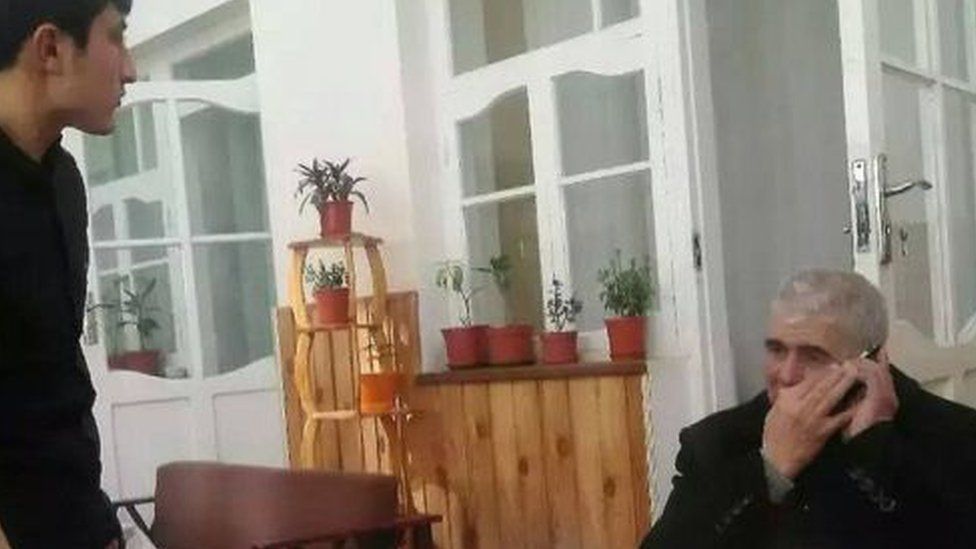Uzbek journalist Muhammad Bekjanov freed after 18 years
- Published

A journalist and opposition activist in the Central Asian republic of Uzbekistan, Muhammad Bekjanov, has been freed after serving 18 years in prison.
He was convicted of attempting to kill the late President, Islam Karimov, but has said he was tortured into confessing to fabricated charges.
Mr Bekjanov is a brother of exiled opposition leader Muhammad Salih.
He and a colleague are thought to have been in jail longer than any other journalists in the world.
His colleague, Yusuf Ruzimuradov, remains in prison.
A BBC analyst says Mr Bekjanov's release may reflect a change in government policy under President Shavkat Mirziyoyev, who took over in December.
Karimov was one of Asia's most autocratic rulers, suppressing dissent in the name of battling Islamic extremism in the mainly Muslim republic.
'Honest and courageous'
Mr Bekjanov's release on Wednesday was reported by relatives and a local human rights group.
He was tried in connection with a series of bomb attacks that shook the capital Tashkent in 1999.
He had fled Uzbekistan for Ukraine, where he edited pro-opposition newspaper Erk from exile, but that country extradited both him and Mr Ruzimuradov, a reporter for the same paper.
Back in Uzbekistan, the two men were tried and convicted on a host of charges including publishing a banned newspaper, trying to overthrow the government and involvement in bombings.
Both had their sentences extended while serving them.
Mr Bekjanov's health reportedly deteriorated while he was in prison.
His daughter Aygul Bekjanova told the BBC in 2014 that when her mother visited him two years earlier, she had found him in a terrible state, suffering from tuberculosis and with most of his teeth missing.
In December, the US-based Committee to Protect Journalists reported that he had been moved to solitary confinement.
An official from Human Rights Watch, the US-based international campaign group, said at the time that Mr Bekjanov's "only crime was to have done his job in an honest and courageous manner".
- Published26 September 2014
- Published5 December 2016
- Published3 September 2016
- Published23 August 2023